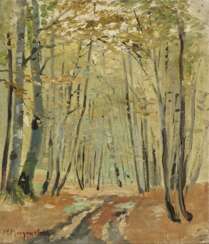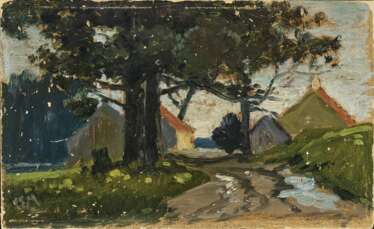карл эрнст моргенштерн (1847 - 1928)
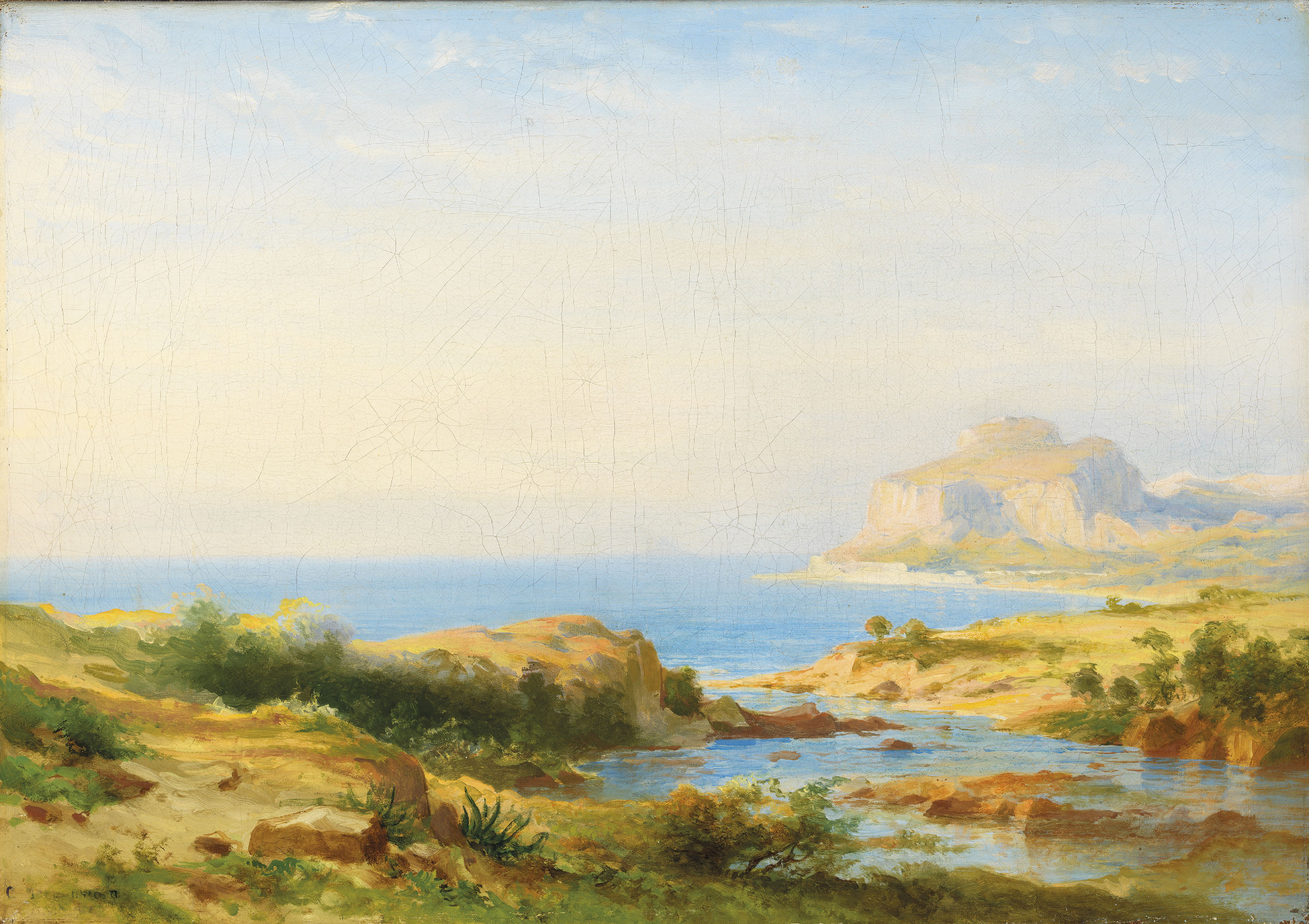
Carl Morgenstern was a German landscape painter of the Romantic period. His father, Johann Friedrich Morgenstern, was an architectural and landscape painter, and Carl received painting and drawing lessons from him at a young age.
At the age of 21 Carl went to Munich and became a pupil of the landscape painter Carl Rottmann. After a three-year stay in Italy, he returned to Frankfurt am Main, where he established himself as an artist and was later appointed professor.
His paintings from the early period mainly show landscapes, which surprise with special light effects and earned him the nickname "Italianist". Despite his desire for artistic innovation, he later devoted himself mainly to repeating popular motifs in order to satisfy his patrons.
Some of his most important works are views of Frankfurt am Main and the city's surroundings, as well as landscapes from the Taunus and along the Rhine.
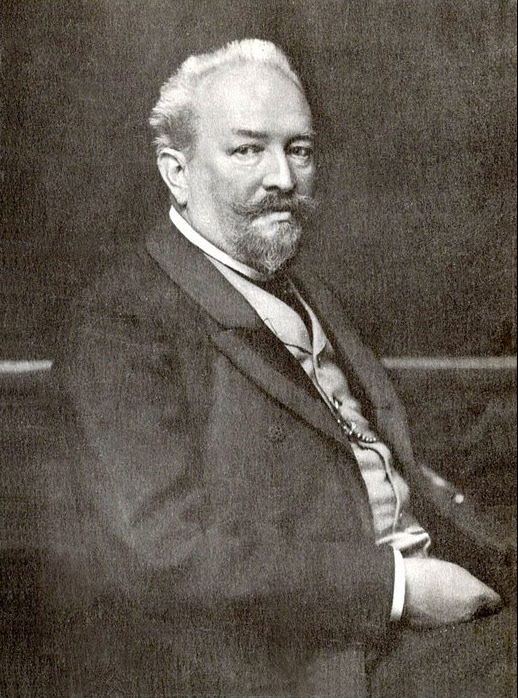
Carl Ernst Morgenstern was a German landscape painter and professor at the School of Applied Arts in Breslau.
His father Christian E. B. Morgenstern was also a landscape painter and taught his son in his early years. Later Morgenstern studied with various teachers, including Josef Schertel, Eduard Schleich and Theodor Kotsch.
Carl Ernst Morgenstern was an important landscape painter of the 19th century. His style was influenced by the Barbizon School, which advocated painting en plein air and a realistic depiction of nature and landscape. Morgenstern also introduced these ideas into his teaching at the School of Arts and Crafts in Breslau and thus influenced an entire generation of artists. Today his works can be found in numerous museums and collections and he is considered one of the most important landscape painters of his time.
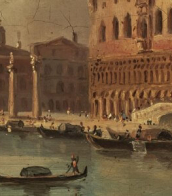

Carl Morgenstern was a German landscape painter of the Romantic period. His father, Johann Friedrich Morgenstern, was an architectural and landscape painter, and Carl received painting and drawing lessons from him at a young age.
At the age of 21 Carl went to Munich and became a pupil of the landscape painter Carl Rottmann. After a three-year stay in Italy, he returned to Frankfurt am Main, where he established himself as an artist and was later appointed professor.
His paintings from the early period mainly show landscapes, which surprise with special light effects and earned him the nickname "Italianist". Despite his desire for artistic innovation, he later devoted himself mainly to repeating popular motifs in order to satisfy his patrons.
Some of his most important works are views of Frankfurt am Main and the city's surroundings, as well as landscapes from the Taunus and along the Rhine.

Carl Ernst Morgenstern was a German landscape painter and professor at the School of Applied Arts in Breslau.
His father Christian E. B. Morgenstern was also a landscape painter and taught his son in his early years. Later Morgenstern studied with various teachers, including Josef Schertel, Eduard Schleich and Theodor Kotsch.
Carl Ernst Morgenstern was an important landscape painter of the 19th century. His style was influenced by the Barbizon School, which advocated painting en plein air and a realistic depiction of nature and landscape. Morgenstern also introduced these ideas into his teaching at the School of Arts and Crafts in Breslau and thus influenced an entire generation of artists. Today his works can be found in numerous museums and collections and he is considered one of the most important landscape painters of his time.


Carl Ernst Morgenstern was a German landscape painter and professor at the School of Applied Arts in Breslau.
His father Christian E. B. Morgenstern was also a landscape painter and taught his son in his early years. Later Morgenstern studied with various teachers, including Josef Schertel, Eduard Schleich and Theodor Kotsch.
Carl Ernst Morgenstern was an important landscape painter of the 19th century. His style was influenced by the Barbizon School, which advocated painting en plein air and a realistic depiction of nature and landscape. Morgenstern also introduced these ideas into his teaching at the School of Arts and Crafts in Breslau and thus influenced an entire generation of artists. Today his works can be found in numerous museums and collections and he is considered one of the most important landscape painters of his time.
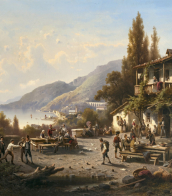

Carl Ernst Morgenstern was a German landscape painter and professor at the School of Applied Arts in Breslau.
His father Christian E. B. Morgenstern was also a landscape painter and taught his son in his early years. Later Morgenstern studied with various teachers, including Josef Schertel, Eduard Schleich and Theodor Kotsch.
Carl Ernst Morgenstern was an important landscape painter of the 19th century. His style was influenced by the Barbizon School, which advocated painting en plein air and a realistic depiction of nature and landscape. Morgenstern also introduced these ideas into his teaching at the School of Arts and Crafts in Breslau and thus influenced an entire generation of artists. Today his works can be found in numerous museums and collections and he is considered one of the most important landscape painters of his time.
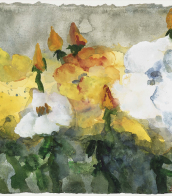

Carl Ernst Morgenstern was a German landscape painter and professor at the School of Applied Arts in Breslau.
His father Christian E. B. Morgenstern was also a landscape painter and taught his son in his early years. Later Morgenstern studied with various teachers, including Josef Schertel, Eduard Schleich and Theodor Kotsch.
Carl Ernst Morgenstern was an important landscape painter of the 19th century. His style was influenced by the Barbizon School, which advocated painting en plein air and a realistic depiction of nature and landscape. Morgenstern also introduced these ideas into his teaching at the School of Arts and Crafts in Breslau and thus influenced an entire generation of artists. Today his works can be found in numerous museums and collections and he is considered one of the most important landscape painters of his time.

